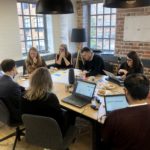LocalGov Drupal (Discovery)
Before this discovery began, Brighton and Croydon Councils had already successfully managed to share code to help them develop their Drupal-based websites. They joined up with Bracknell Forest and Oxford […]

 UK Ministry of Housing, Communities and Local Government (MHCLG)
UK Ministry of Housing, Communities and Local Government (MHCLG)
Laying the foundations for better local public services
Before this discovery began, Brighton and Croydon Councils had already successfully managed to share code to help them develop their Drupal-based websites. They joined up with Bracknell Forest and Oxford […]

The alpha work set out to test an implementation of an “Open Community” data standard, expressed in machine readable terms and used for interchange of data by multiple organisations fulfilling […]

Following on from the ‘GOV.UK Pay as a viable alternative e-payment provider’ project, this discovery explores income management and e-payment system landscape in local government. The aim of this project […]

There’s no pan-local government ‘playbook’ describing how to make code sharing work in practice. We believe this discourages collaboration, and leads to painful reinventions of the wheel in councils where it’s tried. Our Discovery project will work through the issues that […]
Open source communities and practices in technology have been around since the early 1960s with many academics distributing free and open software to encourage and support openness and co-operation. As […]
Debt poverty is an issue that affects all Local Authorities in the UK. The Joseph Rowntree Foundation estimates that approximately 22% of people in the UK are living in poverty. […]
Internet technologies around IoT are promising radical improvements in how we serve our residents and businesses. This gives rise to a range of emerging opportunities to achieve significant social and […]
It is hard for young people to progress into the world of meaningful work. We know that young people struggle to find out about learning opportunities, on-the-job training and full/part […]
This Discovery Project looks to explore Wi-Fi print solutions so that local authorities have a greater understanding of the available solutions in the common marketplace and can make better informed […]
Our initial research suggests there is currently a gap between young people, particularly aged 16-24, and their local councils. For the Discovery phase we are focusing on young people and […]
This project aims to allow councils, through video calling, to gain the benefits of face-to-face communication without the traditional associated costs. When redeveloping its website in 2015, AVDC found that costs for […]
This discovery project breaks into three parts a common problem facing local authorities; The first part of the common problem is understanding whether voice truly represents a long-term change in […]
East Lindsey District Council alongside Boston Borough Council and South Holland District Council cover 2,250 km² of East Lincolnshire with a combined population of over 300,000. The sparsely distributed population […]
At the moment, none of the partner authorities have sufficient skills or capacity to carry out effective user research. Therefore we are all unsure whether we are meeting user needs. […]
A recent Select Committee report concluded that “the Government does not understand citizen’s views on how their data should be used” (https://bit.ly/2k2U1P0). This knowledge gap problem exists at national, regional […]
Stevenage Borough Council and East Herts District Council run shared ICT and Revenue and benefits partnership. At present many processes and information transfers within both organisations are a manual process. […]
At our discovery phase we delivered XP and XPlore: a small-scale project with 339 children and young people in 6 schools, living in areas of higher deprivation and low social […]
The alpha stage of the project will be the development of a digital planning tool (the Tool) which will be a live functional prototype based on Gateshead Council data to […]
All local authorities need to manage their finances through income management (IM) and reconciliation processes: matching expected income against actual income allocating actual income to paying users’ accounts (for example, […]
The structure of local and central government lends itself to public organisations working in silos to devise solutions to meet their own needs. This leads to huge inefficiencies through duplication […]